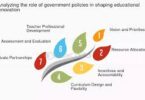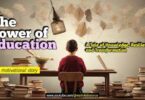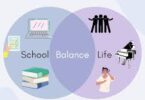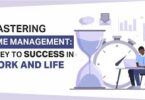The Power of Lifelong Learning: Never Stop Growing
In today’s fast-paced and ever-changing world, the concept of lifelong learning has become more crucial than ever. Whether you’re a seasoned professional, a student, or a retiree, embracing a mindset of continuous education can unlock limitless opportunities and foster personal and professional growth. Lifelong learning is not just about acquiring knowledge—it’s about cultivating curiosity, resilience, and adaptability. This article explores the power of lifelong learning, its benefits, and practical ways to integrate it into your daily life.
Lifelong learning refers to the continuous pursuit of knowledge and skills throughout an individual’s life. It goes beyond formal education and encompasses informal and non-formal learning activities such as reading, attending workshops, or engaging in meaningful conversations. The essence of lifelong learning lies in maintaining an open mind and a willingness to grow.
Key Characteristics of Lifelong Learners
- Curiosity: Lifelong learners are naturally curious and constantly seek to understand the world better.
- Adaptability: They embrace change and are quick to learn new skills or concepts when needed.
- Self-Motivation: They take charge of their own learning journey and proactively seek opportunities for growth.
- Resilience: Lifelong learners view challenges as opportunities to learn rather than obstacles to overcome.
The Benefits of Lifelong Learning
1. Enhances Career Prospects
In a competitive job market, staying relevant is essential. Lifelong learning equips individuals with up-to-date skills and knowledge, making them valuable assets to employers. Whether it’s mastering new technologies or acquiring leadership skills, continuous learning can propel your career forward.
2. Boosts Mental Agility
Engaging in learning activities keeps your brain active and sharp. Studies show that learning new skills can improve memory, cognitive function, and problem-solving abilities. It’s like a workout for your mind—the more you use it, the stronger it becomes.
3. Promotes Personal Development
Lifelong learning fosters self-awareness and confidence. By exploring new subjects or hobbies, you gain a deeper understanding of yourself and your interests. This personal growth can lead to a more fulfilling and meaningful life.
4. Strengthens Social Connections
Learning often involves interacting with others, whether it’s through group classes, online forums, or professional networks. These interactions can help you build meaningful relationships and expand your social circle.
5. Encourages Adaptability in a Changing World
In a world where industries and technologies are constantly evolving, the ability to adapt is invaluable. Lifelong learners are better equipped to navigate changes and seize new opportunities.
1. Set Clear Goals
Identify what you want to achieve through learning. Whether it’s advancing in your career, mastering a new hobby, or simply staying informed, having clear objectives can keep you motivated.
2. Leverage Online Resources
The internet is a treasure trove of learning materials. From online courses and webinars to podcasts and eBooks, there are countless resources available to suit various learning styles and preferences.
3. Dedicate Time for Learning
Incorporate learning into your daily or weekly routine. Even dedicating 15-30 minutes a day to reading or practicing a new skill can make a significant difference over time.
4. Join Learning Communities
Engage with others who share your interests. Joining book clubs, online forums, or local workshops can provide support, motivation, and a sense of camaraderie.
5. Embrace Failure as a Learning Opportunity
Mistakes are an inevitable part of the learning process. Instead of fearing failure, view it as a chance to gain insights and improve.
Examples of Lifelong Learning Activities
- Learning a New Language: Enhance your communication skills and cultural understanding by picking up a new language.
- Taking Up a Hobby: From painting to gardening, hobbies provide a creative outlet and a sense of accomplishment.
- Attending Workshops or Seminars: Stay updated on trends and innovations in your field.
- Pursuing Online Courses: Platforms like Coursera, Udemy, and LinkedIn Learning offer courses on virtually any subject.
- Volunteering: Gain new skills while giving back to your community.
Real-Life Success Stories
1. Ray Kroc: A Late Bloomer’s Journey
Ray Kroc, the founder of McDonald’s, was 52 when he began his journey into the fast-food industry. His story exemplifies how lifelong learning and perseverance can lead to extraordinary success.
2. Malala Yousafzai: Advocating for Education
Malala’s advocacy for education demonstrates the transformative power of learning. Despite facing adversity, her commitment to lifelong learning has inspired millions worldwide
Conclusion: Never Stop Growing
Lifelong learning is not just a practice; it’s a mindset that can transform your life. By staying curious, embracing challenges, and continuously seeking knowledge, you can unlock your full potential and navigate the complexities of the modern world with confidence. Remember, it’s never too late to start your learning journey—so take the first step today and never stop growing.










Leave a Comment